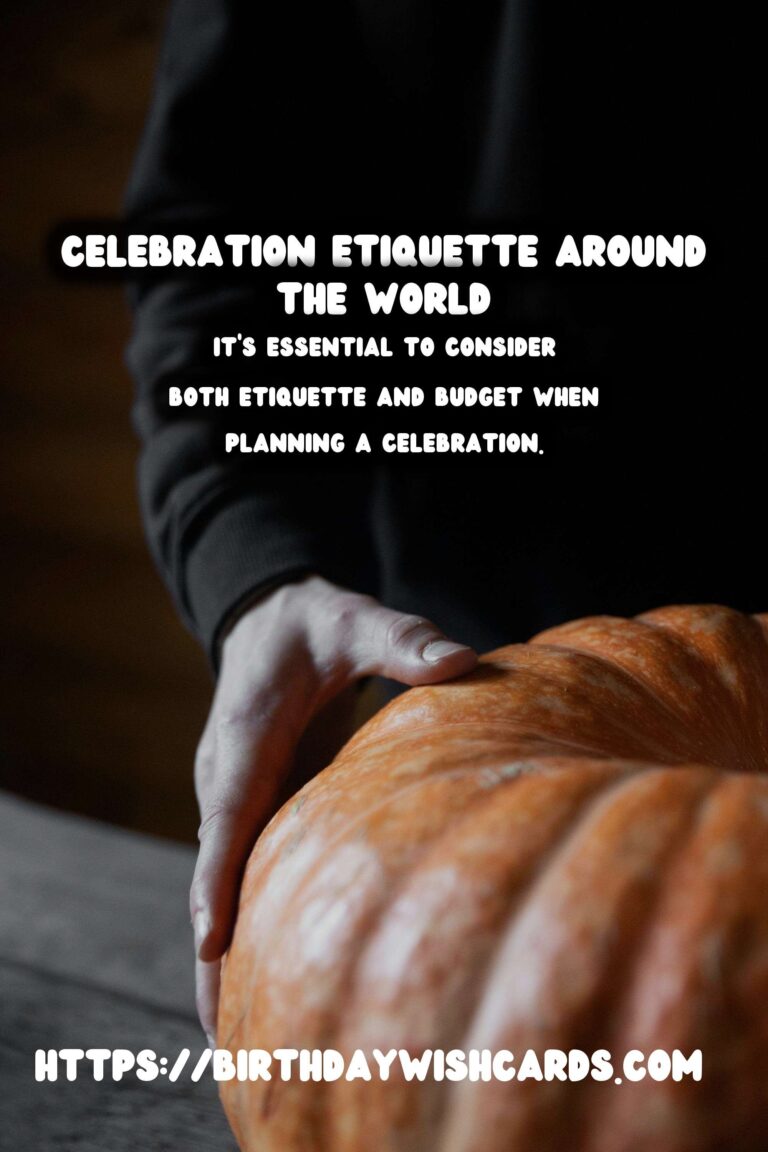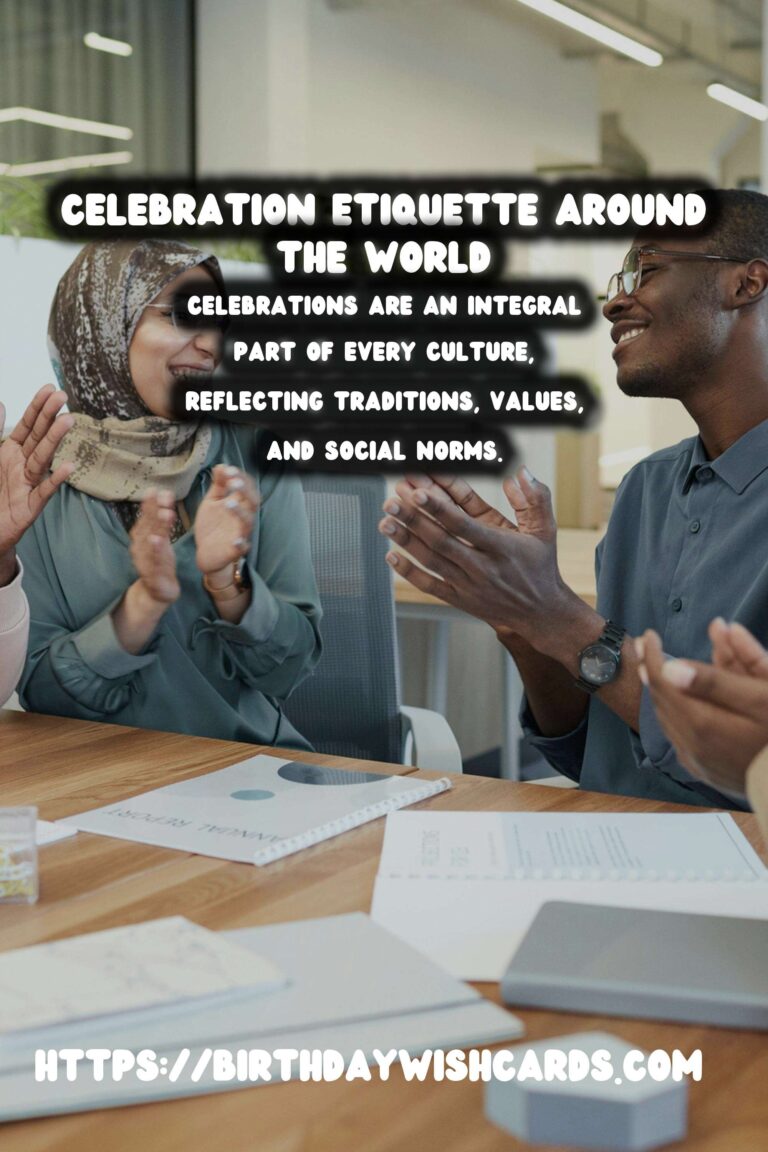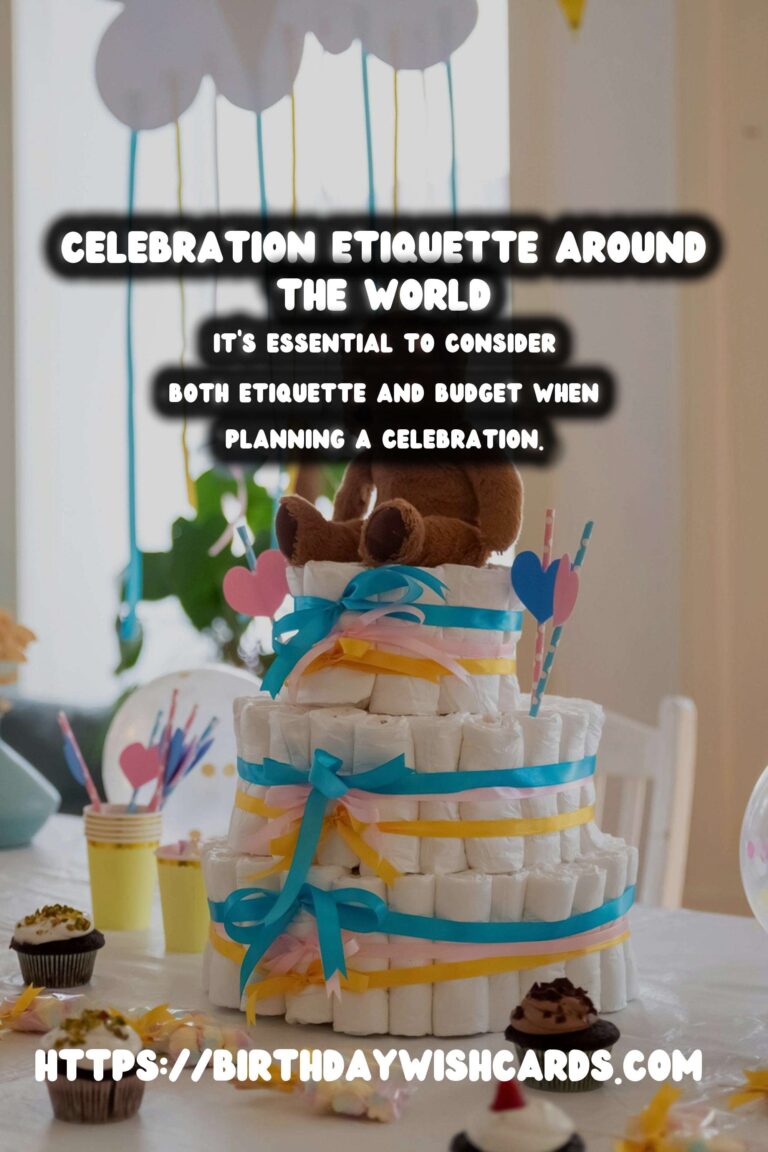
Celebrations are an integral part of every culture, reflecting traditions, values, and social norms. However, when planning a celebration, it’s essential to consider both etiquette and budget. This article explores classic celebration etiquette from various countries, offering tips to observe customs without breaking the bank.
Understanding Celebration Etiquette
Celebration etiquette embodies the rules, traditions, and behaviors considered polite and respectful during special occasions. Whether it’s a wedding, birthday, or holiday gathering, respecting local customs enhances the experience for both hosts and guests.
1. Celebratory Etiquette in Europe
a. The United Kingdom
In the UK, formal celebrations often require RSVPs and punctuality. Guests should bring a small gift for the host, such as a bottle of wine or a bouquet of flowers. If attending a wedding, be mindful of the dress code, which is often specified on the invitation.
b. France
French celebrations are sophisticated affairs. Guests should arrive fashionably late—typically 15 minutes after the invite time. It’s customary to greet hosts with a warm handshake or cheek-kiss, and to offer a small gift as a thank-you.
c. Italy
Italians treasure family and food. When invited to an Italian home, it is polite to arrive with a gift of food or wine, which is greatly appreciated. Guests should also praise the meal served to express gratitude to the host.
2. North American Celebration Customs
a. The United States
In the U.S., casual gatherings dominate, allowing for flexibility in etiquette. However, hosts typically appreciate a small gift or a handwritten thank-you note post-event. If you’re invited to a barbecue, treat the host to dessert or drinks.
b. Canada
Canadians share similarities with the U.S., but they emphasize politeness. Saying ‘please’ and ‘thank you’ is crucial. When attending a gathering, a token gift isn’t mandatory, but it’s always seen as a gracious gesture.
3. Asian Celebration Etiquette
a. Japan
Japanese celebrations are marked by formality. When invited to a celebration, it’s important to arrive on time. Guests should bow slightly when greeting hosts and may present a gift in elegant wrapping. Be sure to adhere to local customs, such as removing shoes indoors.
b. China
In Chinese culture, gift-giving is significant. Guests should bring a gift, preferably wrapped in red paper for good luck. When attending a meal, avoid using chopsticks to stick upright in rice, as it resembles funeral rites.
4. African Celebration Traditions
a. Nigeria
Nigerian celebrations are vibrant and communal. Guests are expected to partake in the feast and contribute something, even if it’s a simple drink. When greeting, it’s customary to show respect to elders through a slight bow or kneel.
b. South Africa
South Africans love community gatherings. When invited to a braai (barbecue), bringing along drinks or side dishes is appreciated. Engage in conversation and ensure to compliment the host’s culinary skills, as it fosters a friendly environment.
5. South American Celebration Etiquette
a. Brazil
Brazilians are warm and welcoming. Guests arriving at a celebration should bring gifts, such as sweets or a bottle of wine. It’s common for festivities to last late into the night, so be prepared to join in the dancing and music.
b. Argentina
In Argentina, meal times are social events. When attending a gathering, it is polite to arrive 30 minutes late. Gifts are not always expected, but a small token of appreciation, like flowers or dessert, is often appreciated.
Celebrating on a Budget
While observing etiquette is crucial, celebrations don’t have to be extravagant. Here are some tips to celebrate on a budget while respecting customary practices:
1. Simple Gifts
Instead of buying expensive presents, consider handmade items or heartfelt letters. Personal touches resonate more than costly gifts.
2. Potluck Gatherings
Encouraging guests to bring dishes can save money and foster community. Potlucks allow everyone to contribute, making the celebration more inclusive.
3. Outdoor Celebrations
If the weather permits, an outdoor celebration can be cost-effective while offering a relaxed atmosphere. Parks and gardens provide beautiful backdrops for any event.
4. DIY Decorations
Craft homemade decorations to add a personal touch without excessive costs. Simple materials can create stunning themed decorations.
5. Limit Guest Lists
Keeping celebrations intimate with close family and friends can create meaningful interactions and lower costs associated with food and venue.
In conclusion, classic celebration etiquette varies widely across cultures. Understanding these differences can enhance your gatherings and show respect to traditions. By implementing budget-friendly strategies, you can create memorable celebrations that honor the customs of our global society without financial strain.
Celebrations are an integral part of every culture, reflecting traditions, values, and social norms. It’s essential to consider both etiquette and budget when planning a celebration. 









#CelebrationEtiquette #CulturalCelebrations #BudgetCelebrations




